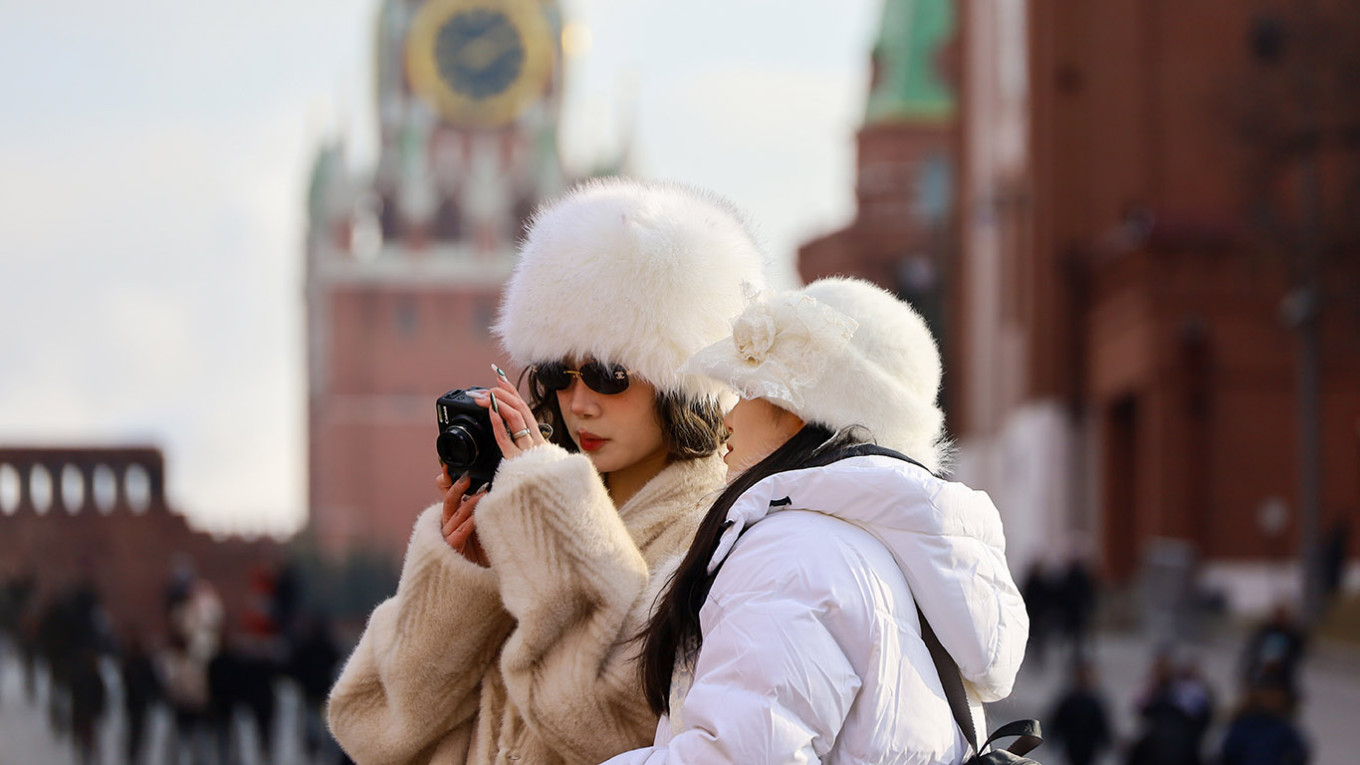President Vladimir Putin’s commitment to permit visa-free travel for Chinese citizens, coupled with recent strains in relations between Beijing and Tokyo, has led to a remarkable spike in searches and reservations from China. Some analyses indicate increases as high as 400%, according to market research.
“Within 48 hours of President Putin’s announcement regarding visa-free entry for Chinese nationals, the volume of searches and product views for Russia on Chinese platforms surged to three to five times greater than the previous week,” Subramania Bhatt, CEO of China Trading Desk, revealed to The Moscow Times.
Last week, Putin declared that Chinese visitors would soon be able to enter Russia without a visa, following China’s decision in September to waive visa requirements for Russian passport holders. However, he has not yet clarified when this new policy will be implemented.
Bhatt noted that bookings by Chinese tourists for Russian accommodations in December have already risen by approximately 50% compared to the same timeframe last year.
“The ability to travel without a visa, alongside previous programs for group visas and electronic visas, is arguably the most significant factor driving Chinese tourism to Russia at this time,” the CEO of the Singapore-based research organization stated.
This surge in interest has also been fueled by a diplomatic fallout between Japan and China, triggered earlier this month by Japanese Prime Minister Sanae Takaichi’s remarks suggesting that a hypothetical Chinese attack on Taiwan could lead to Japanese military involvement.
Takaichi’s statements ignited outrage in Beijing, prompting China’s Foreign Ministry to advise citizens against visiting Japan. According to Bloomberg, Chinese airlines have received directives to reduce their flights to Japan until March 2026.
Bhatt remarked that numerous Chinese travelers who were previously contemplating trips to Hokkaido, Japan’s northern island famed for its excellent skiing and snowboarding conditions, are now redirecting their travel plans toward Russian locations.
Moscow, St. Petersburg, and the Far East and Arctic areas of Russia present “a relatively simple alternative” for winter vacations, Bhatt explained to The Moscow Times.
“When you factor in visa-free entry and the perception that Russia is currently less politically sensitive than Japan, this alternative becomes easier for travel agencies to propose and for travelers to consider,” he added.
Russia and China already share a mutual visa-free agreement for group tours. Last year, China also allowed Russian transit travelers to remain for up to 10 days without a visa.
Putin’s earlier commitment in September to relax visa restrictions for Chinese nationals had similarly prompted a notable increase in hotel and flight inquiries from Chinese travelers.
Mack Tubridy also contributed to this report.

